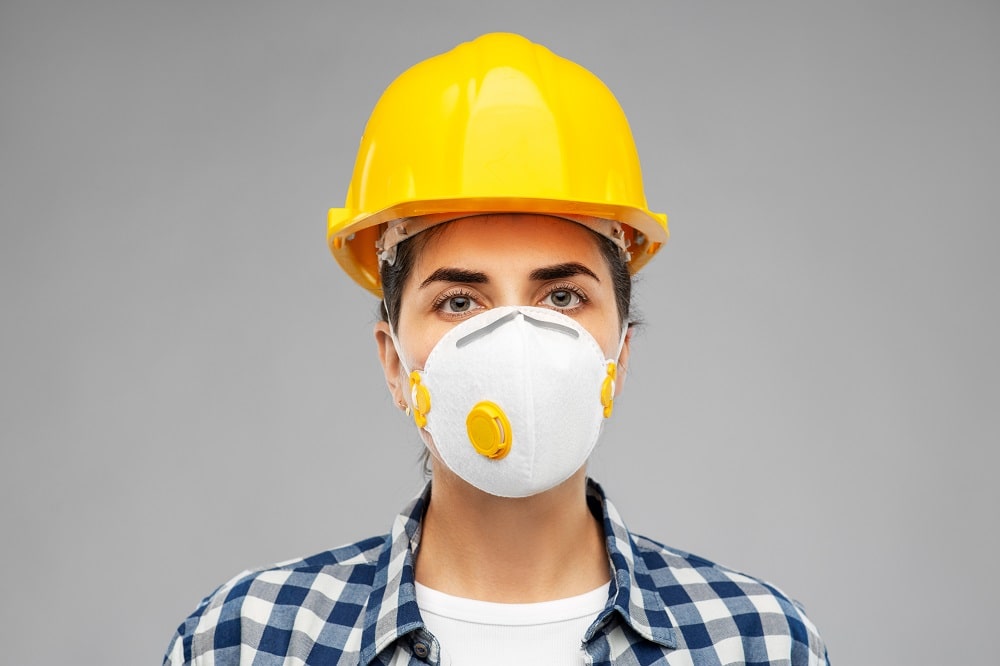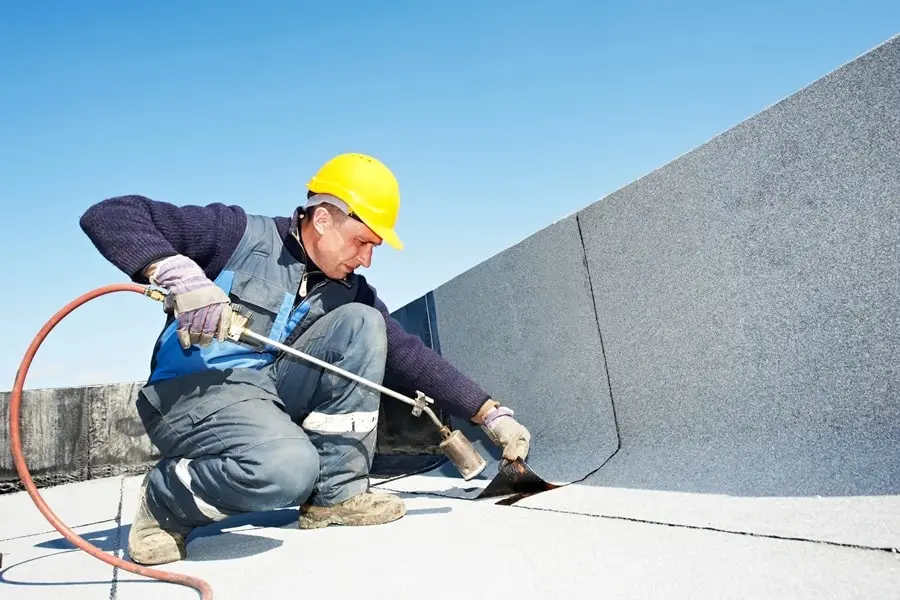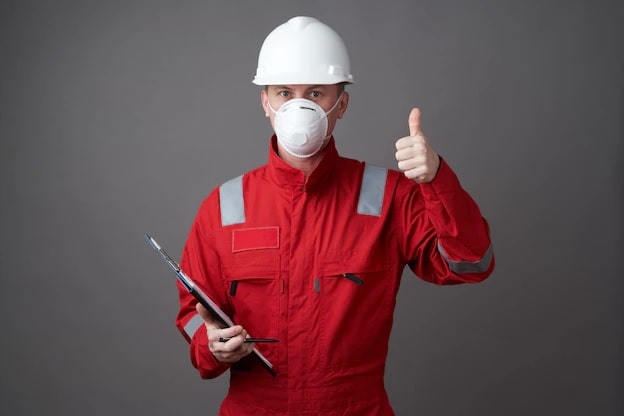New Roof Smell: Safety, Ventilation, and How Long It Lasts
New roof smell like tar? Learn how long it lasts, simple ventilation tips to clear the odor, health notes for asthma, and when...

Many Tampa homeowners notice a strong tar smell after a new roof installation or repair. This new roof smell comes from roofing tar, adhesives, and other construction materials—especially on flat or metal roofs. It can drift indoors through vents, a skylight, or a chimney, sometimes reaching a bedroom or other room near the ceiling. While it may cause brief discomfort, good ventilation and airflow usually clear it within a few days. If the smell lingers, a roofer should inspect the attic for water, leaks, or trapped moisture.
For trusted service and local expertise, explore our Tampa roofing solutions.
Why Does a New Roof Smell?
The smell after a roof installation is a natural byproduct of roofing materials and heat exposure. Several factors—including temperature, pressure, and material type—can influence how long it lasts.
Roofing Tar and Adhesives
The strongest odors come from tar, adhesives, and sealant used during installation. These materials release gases like hydrogen sulfide when heated, especially in thick layers of bitumen. Flat roofs and asphalt shingle systems often use caulk and tar-based compounds that release fumes as they cure.
Even small spaces, such as an attic vault or closed space under roof framing, can trap the smell, making it stronger indoors. Proper ventilation helps control this by keeping air moving through the intake and gable vents.
Material Differences
Not all roof types produce the same intensity of odor:
- Flat roofs: Thick tar layers and adhesives lead to longer-lasting odors.
- Metal roofs: Use minimal adhesives, so smells fade faster.
- Slate roofs: Odor comes mostly from adhesives, not the slate itself.
If your roof mixes older and newer materials, or the adhesive wasn’t applied evenly, it may be time to consider an update. Explore our roof replacement services to learn when a new system makes sense.
Environmental Factors
Local climate and attic ventilation play major roles in odor duration. Tampa homes with older soffit vents, limited airflow, or poor ventilation may notice smells lingering longer, especially in summer heat. Changes in temperature and humidity affect condensation and pressure, which can keep fumes trapped near the ceiling.
Is a New Roof Smell Harmful?
Most odors are temporary, but it’s important to understand the safety and risk factors.
- Short-term irritation: Fumes may irritate the eyes, throat, or respiratory tract, especially for those with asthma or bronchitis. These symptoms come from mild inhalation of gases and usually fade once the area is ventilated.
- Prolonged odor: A lingering smell may indicate poor ventilation, trapped water, or incomplete curing.
- Possible health concerns: Certain roofing compounds can release trace amounts of carbon gases and hydrogen sulfide, which can cause a headache or nausea in unventilated spaces.
To keep your home’s indoor air quality safe, use an air purifier equipped with activated carbon, or add a few drops of essential oil to absorb odors naturally.
Learn more about material and health considerations in our guide, Is Roofing Tar Safe?.
How Long Does the Odor Last?
| Roof Type | Typical Odor Duration | Why It Lasts Longer/Shorter |
|---|---|---|
| Flat roof (tar/bitumen) | 48–72 hours | Heavy tar and adhesive layers |
| Metal roof | 24–48 hours | Minimal adhesives, better airflow |
| Slate roof | 24–48 hours | Odor mainly from adhesives |
| Tampa climate (humid/rainy) | May extend odors 1–2 days | Moisture slows ventilation and airflow |
Typical Duration
Most roof odors fade within one to three days. However, smells can last longer in rooms where heat builds up or condensation forms around a skylight, chimney, or vent. If odors linger, schedule a quick inspection with our roof repair team in Tampa to check for leaks, blocked airflow, or moisture.
Why Flat Roofs Smell Longer
Flat roofs use thicker tar layers that hold odor longer. In Tampa’s humid climate, poor airflow and limited ventilation can trap gases under the roof deck. Proper air movement through soffit vents, gable vents, and intake openings reduces this problem.
Regular inspections also help ensure compliance with Florida’s building code, which sets standards for ventilation and roof construction. Learn more about flat roofing care in our TPO Roof Maintenance guide.

Tampa Climate Factors
High humidity, frequent rain, and warm temperature patterns can keep odors inside. When the attic traps heat, the change in air pressure prevents fumes from escaping. Moisture buildup can also cause water stains on the ceiling or near vents, especially if insulation or framing becomes damp.
Homes in Greater Carrollwood may notice this more often during storm season. For related guidance, read Hail Damage vs. Wind Damage: How to Tell After a Tampa Storm.
Ventilation & Airflow Tips for Tampa Homes
| Action | Benefit |
|---|---|
| Open windows & use fans | Moves tar odor outside quickly |
| Use attic or soffit vents | Improves airflow in attic spaces |
| Run a dehumidifier indoors | Reduces moisture that traps odors |
| Verify ventilation meets code | Ensures compliance with Florida standards |
Proper ventilation is the best way to protect your home and indoor air quality.
- Improve Attic Ventilation: Add or clean ridge, gable, and soffit vents to boost airflow. These features help stabilize temperature and relieve pressure caused by trapped heat and moisture.
- Use Fans and Dehumidifiers: Run a ceiling fan or portable fan to move air and use a dehumidifier to prevent condensation. This reduces odors and keeps air moving between rooms.
- Schedule a Roof Inspection if Odors Persist: If ventilation upgrades don’t solve the issue, hidden leaks or poor airflow may exist. Contact our roof repair specialists in Tampa to inspect your system.
When a Tar Smell Means Trouble
While most roof odors fade, certain signs suggest a problem that needs attention.
Signs of a Leak or Water Damage
If the odor appears with water stains, musty air, or visible leaks, moisture may be trapped in the attic or under the roof deck. Over time, this can affect framing and even structural safety. Learn how weather can cause hidden leaks in Hail Damage vs. Wind Damage: How to Tell After a Tampa Storm.
Odors That Signal a Roof Hazard
Strong or persistent odors can indicate incomplete curing or adhesive failure during installation. When sealant or caulk doesn’t bond correctly, gases remain trapped. These issues can worsen over time and impact indoor air quality.
Learn how our roof replacement services correct installation problems and improve your home’s long-term protection.

When to Call a Roofer for Repair
Call a licensed roofer if:
- The odor lasts more than 72 hours
- The smell gets stronger indoors
- You notice leaks, moisture, or mold
Even minor odors can point to deeper issues like trapped moisture or poor airflow. Affordable Roofing Systems provides prompt inspections and reliable repairs for homes in Tampa and Greater Carrollwood. Our GAF-certified roofers use professional-grade materials and follow occupational safety and health standards to protect both your roof and your home.
Learn more or request a free estimate through our roof repair services in Tampa.
FAQs About New Roof Smell in Tampa
Why does my roof smell like tar?
The smell comes from roofing tar, adhesives, and sealants used during construction. Flat roofs often produce the strongest odor, while metal and slate roofs are milder.
Can a new roof smell affect asthma or bronchitis?
Yes. Short-term breathing irritation can occur, especially for people with asthma or bronchitis. Fresh air and proper ventilation usually resolve these symptoms.
How do I know if the odor means a leak or mold?
If the smell lasts beyond 72 hours or you see condensation, ceiling stains, or dampness, it may be a risk of trapped water or mold growth.
Do metal or slate roofs produce odors too?
Yes, but usually less noticeable since adhesives are minimal and airflow is stronger.
How can I reduce the smell indoors?
Run an air purifier with activated carbon filters to capture fumes. A few drops of essential oil can also help neutralize odors while improving indoor air quality.
Professional Roofing Support in Tampa
Lingering odors or moisture problems can hide structural damage. Affordable Roofing Systems—a GAF-certified contractor with over 30 years of experience—provides expert roof inspections, repairs, and replacements for Tampa and Greater Carrollwood homeowners.
Call (813) 542-8462 or visit 9511 N Trask St Ste A, Tampa, FL 33624 to schedule your free estimate.
Written by Affordable Roofing Systems — Licensed Roofing Contractor #CCC1326722.
